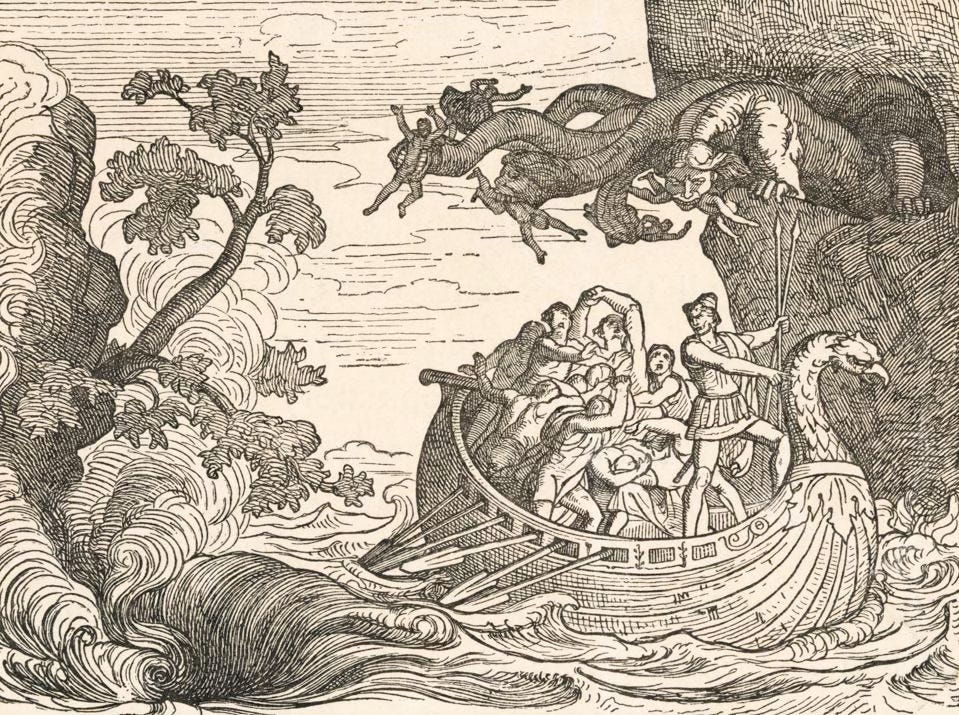As we go into another academic year, I am going to take a moment to get on a soapbox.
It’s about education and what we should teach, and it’s not informed by research, just common sense.
And I promise you, there is some mythology in there.
So here we go.
Recently on a social media platform named after the 24th letter of the alphabet, I saw this thought:
"Learning should be seen as a qualitative change in a person's way of seeing, experiencing, understanding, conceptualizing something in the real world - rather than as a quantitative change in the amount of knowledge someone possesses." -Paul Ramsden (Australian educator)
I have issues with the quotation, to say the least.
First, to be fair, I don’t really know anything about Paul Ramsden apart from this quote, so I apologize if I’m taking this out of context.
With that said, I don’t know why learning has to be an either/or thing.
If you increase your amount of knowledge, that’s a good thing. Is it learning? You can argue whether it is or it isn’t, but it’s good. Knowing more is good, in my opinion. It’s a good in itself.
Of course, that’s not really an argument.
This is my argument:
I would say that it is self-evident that you cannot have a qualitative change in a person’s way of seeing UNLESS you have a quantitative change in the amount of knowledge a person possesses.
And in fact, you really do need to spend a fairly large amount of time absorbing new knowledge before you are able reliably to have a qualitative change in the way you look at the world.

We can see this in the way that small children’s brains work. Before the age of 10-12, students’ brains are wired to take in new knowledge and facts and organize them. Remember that tiny child from the Ellen De Generes show who had memorized billions of facts about the US presidency? Or how about your friend who was into dinosaurs when she was 5 years old? Was she delving deep into the mysteries and controversies over evolution?
Children of this age do not have the capacity to (or an interest in) experiencing, conceptualizing, or understanding anything.
They are stockpiling knowledge for a greater purpose later.
To me, that’s learning.
And it’s necessary.
Case in point: Greek Mythology.
The tales, adapted for tender souls, used to be a fixture in grade school curriculums. Then, later on in life, when you read in a book that someone was between Scylla and Charybdis, you would understand that the author was talking about being in a situation with no real good choice between two alternatives.
That was the main purpose of Bulfinch’s Mythology, one of the first truly popular books about Greek myths, published in the mid-nineteenth century. Bulfinch believed that having a compendium of knowledge on hand about Scylla et al. helped one to appreciate the art and literature of Europe and the United States.
Has Greek Mythology been studied in elementary school in order to cause a qualitative change in a person’s way of seeing? Not really, and for the reasons listed above. For children, Greek Mythology is still tailored to confirm the American ethos of being gentle and kind with children and not exposing them to the often cruel and ugly parts of the stories.
It’s knowledge. Knowledge in a certain way of looking at the world, for sure. But pretty much just knowledge, like dinosaur knowledge.
So is it learning?
Yes. Yes, it is.
Greek Mythology for children does not qualitatively change a lot of things about children’s ways of looking at the world. What it does is prepare them for that qualitative change.
Greek Mythology gives students a base of knowledge that they can use later on when their logical and abstract brain functioning starts to kick in.
You start with the base. You start with knowledge.
Once you have knowledge, you can use it.
I’ll give an example.
Let’s say that a child learns about the Olympian pantheon. Basic ideas. Zeus is the god of the lightning bolt. Athena is the goddess of wisdom. So on.
Later on, that same person is constructing their idea of how the world works. They are trying to figure out what they believe. Is there a God? How would my behavior change based on what system (or lack of system) I follow?
That person goes back to the polytheism of Greek Mythology. They say to themselves, “That’s one way of constructing and dealing with reality. Okay, I have a base of knowledge about big-picture situations, and I can consider why people would believe in polytheism and whether I do, too.”
(That’s to say nothing of a base of knowledge about Greek Mythology coming in handy if you do study European art and literature, which certainly has a great potential to qualitatively change your understanding of the real world.)
Now it’s quite possible that Paul Ramsden, the author of that quotation, came up in a school system where no one ever questioned a curriculum where everyone just learned to memorize things like the capital of Chile and never applied that knowledge to their experience.
And yet, Paul Ramsden came out into the world, somehow got further educated, became a professional, and was considered smart enough that someone quoted him.
Was that early education useless? I think not.
At the very least, all that memorization helped Mr. Ramsden to see that empty memorization is not desirable as an end in itself.
And more than likely, the memorization helped him to synthesize all the disparate things he learned and make connections he never could have done without knowing all that he had memorized.
And I would further argue that all that memorization actually trained him to think on a higher level because of the stamina required to memorize.
Last but not least: you really cannot be a creative person in any way unless you have a large knowledge base.
This is important for artists, musicians, poets, and the like, because the more you know, the more material you have to innovate from. It’s a serious misunderstanding to think that there are all these creative geniuses who have come up with new music and art etc. out of their own heads and not because they have read, looked at, listened to, and been immersed in a very large knowledge base.
Bottom line: we rob students of an important part of their training if we do not emphasize content in our school curriculums. We cannot just say, “Teach them how to think. The rest is on Google.”
My students, who are at the age where the logical brain is starting to develop, are still incredibly thirsty for facts. They are fascinated by weird vocabulary, little-known historical events, the properties of rocks and minerals.
Now it’s true that if all they did was memorize, my students would be bored. But, as I have argued, learning is not either memorization OR critical thinking. There should be a dynamic interaction between the two.
If you’ve gotten this far, thanks for reading.
I’ll get off my soapbox now.
Fun fact: According to Wiktionary, “to get on one’s soapbox,” a synonym for delivering a rant of some kind, “derives from the fact that soap products in the US used to be commonly transported to stores in large wooden boxes. It used to be common for individuals to give impromptu rally speeches to their neighbors by finding something to stand on like a soapbox.”



